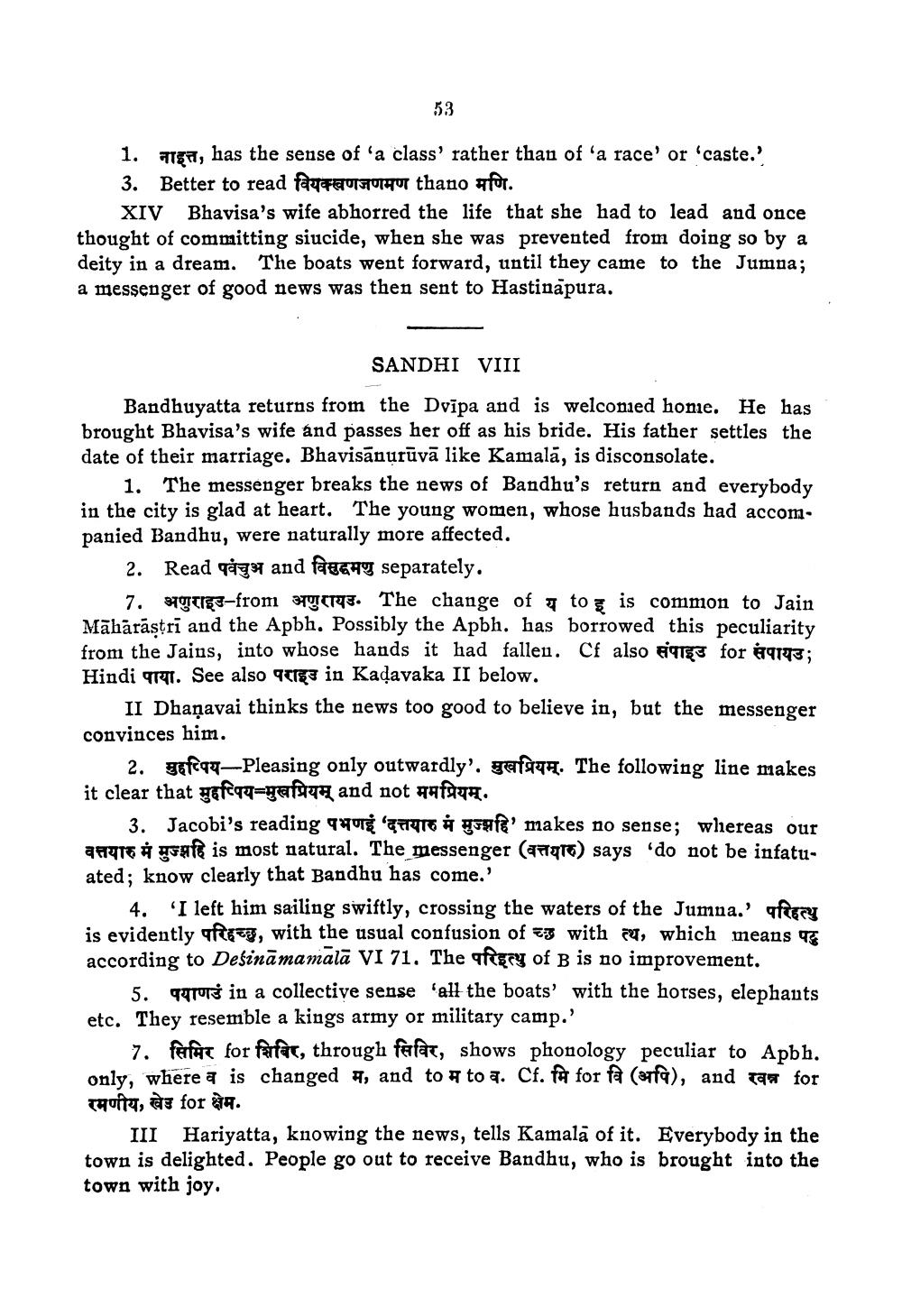________________
53
1. g, has the sense of 'a class' rather than of 'a race' or 'caste.' 3. Better to read वियक्खणजणमण thano मणि.
XIV Bhavisa's wife abhorred the life that she had to lead and once thought of committing siucide, when she was prevented from doing so by a deity in a dream. The boats went forward, until they came to the Jumna; a messenger of good news was then sent to Hastinapura.
SANDHI VIII
Bandhuyatta returns from the Dvipa and is welcomed home. He has brought Bhavisa's wife and passes her off as his bride. His father settles the date of their marriage. Bhavisānurūvā like Kamalā, is disconsolate.
1. The messenger breaks the news of Bandhu's return and everybody in the city is glad at heart. The young women, whose husbands had accompanied Bandhu, were naturally more affected.
2. Read पवंचुअ and विसद्धमणु separately.
7. अणुराइड - from अणुरायउ. The change of य to इ is common to Jain Mahārāṣṭrī and the Apbh. Possibly the Apbh. has borrowed this peculiarity from the Jains, into whose hands it had fallen. Cf also for 9193; Hindi. See also ge in Kadavaka II below.
II Dhanavai thinks the news too good to believe in, but the messenger convinces him.
2. मुहप्पिय— Pleasing only outwardly'. मुखप्रियम्. The following line makes it clear that मुहप्पिय- मुखप्रियम् and not ममप्रियम्.
3. Jacobi's reading
goat' makes no sense; whereas our at is most natural. The messenger (1) says 'do not be infatuated; know clearly that Bandhu has come.'
4. 'I left him sailing swiftly, crossing the waters of the Jumna.' aftery is evidently ft, with the usual confusion of with, which means according to Desināmamālā VI 71. The afty of B is no improvement.
5. in a collective sense 'all the boats' with the horses, elephants etc. They resemble a kings army or military camp.'
7. farfare for farfar, through fafar, only, where a is changed, and to रमणीय, खेड for क्षेम.
shows phonology peculiar to Apbh. to a. Cf. f for fa (ra), and a for
III Hariyatta, knowing the news, tells Kamala of it. Everybody in the town is delighted. People go out to receive Bandhu, who is brought into the town with joy.




